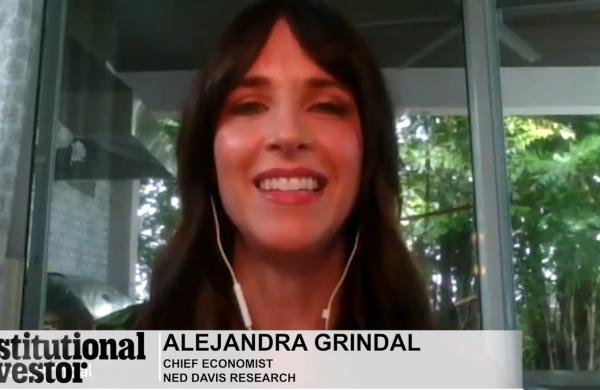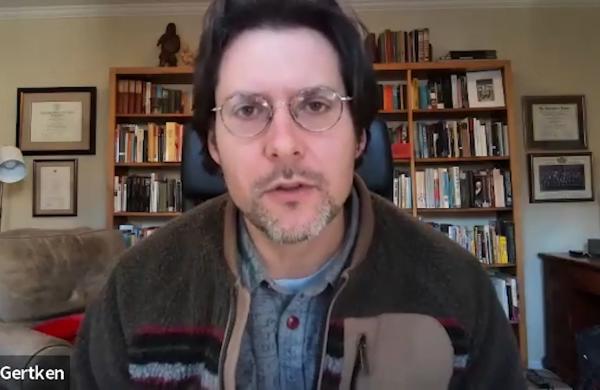Mel Karmazin, who built radio empire Infinity Broadcasting Corp. in the 1980s, used to dismiss satellite radio as little more than music without the commercials -- fine if you're a listener but a disaster if you're a broadcaster. Then he lost out to Sumner Redstone in a power struggle at Viacom and departed the media mogul's huge company in 2004, having served four stormy years as president and COO.
Lately, Karmazin, 61, has come around to the view that satellite radio has a future, after all. Indeed, last November he agreed to become CEO of New Yorkbased Sirius Satellite Radio. Karmazin says there are three reasons for his conversion to satellite: cars, capacity and content. Carmakers are installing satellite radios in millions of vehicles; satellite radio broadcasts more than 100 channels, opening the door to niche programming like that of cable television; and contracts with talk-show stars like Howard Stern are expected to draw listeners from "terrestrial" radio, as satellite folks call it.
But Sirius is far behind Washington based XM Satellite Radio, which launched its service one year earlier, in 2001, and has attracted substantially more listeners. At the end of March, Sirius had 1.45 million subscribers, fewer than half of XM's 3.77 million.
XM's exclusive, long-term deals to have its radios installed in General Motors, Honda, Nissan and Toyota autos also give it a distribution edge over Sirius, whose radios are factory-installed in BMW, DaimlerChrysler and Ford cars. Automakers distributing XM's radios account for 53.9 percent of domestic vehicle production, compared with 35.5 percent for Sirius' partners, estimates J.P. Morgan Chase & Co. Analysts expect XM to generate positive cash flow in 2006, one year earlier than Sirius.
Karmazin's company is bleeding hundreds of millions of dollars in an effort to catch up. Revenue more than quadrupled, to $43 million, in the first quarter of 2005. But the company posted a loss of $194 million, up 34 percent over the same period a year ago, as spending soared on exclusive content. Sirius shares, trading at about $6 in late May, down 21 percent on the year, have been a favorite of short-sellers.
On the bright side, Sirius and XM are a duopoly. With satellite radio projected to gain tens of millions of subscribers over the next decade, both should prosper. But just how much they'll grow depends on competition from new technologies: digital terrestrial radio with comparable fidelity and additional channels; MP3 players such as Apple Computer's iPod; and third-generation cell phones that can tune in programing from the Internet and other sources.
Karmazin is betting that content will trump technology. Sirius spent $500 million to secure Stern's bawdy talk show for five years, beginning no later than next January. It has agreed to shell out hundreds of millions more for exclusive rights to broadcast professional football, basketball, hockey and auto racing. Karmazin also has signed rehabilitated lifestyle diva Martha Stewart for her own radio show. He discussed the company's prospects with Institutional Investor Senior Editor Steven Brull at the Beverly Hilton hotel in Beverly Hills, California.
Institutional Investor: Before we talk about Sirius, let me ask about Tom Freston and Leslie Moonves, who succeeded you at Viacom. The company has disclosed that in addition to earning total compensation in excess of $50 million each last year, they together charged Viacom about $150,000 for lodging despite staying in their own homes while traveling for business.
Karmazin: My only comment is that if the compensation committee of the company determined that it's appropriate, then there's nothing wrong with it.
When you were president, did you bill similar expenses?
No. Take a look at any of the disclosures.
Would you have approved it?
I don't want to get into hypotheticals.
How do you assess competition with XM Satellite?
I really don't. I truly look upon the people who don't have satellite radio as the opportunity. If I had to look at a specific competitor, it would be the terrestrial radio broadcasters. In satellite radio I see a duopoly, like Coke and Pepsi. It's a big market. Both companies will be financially very successful.
Are you Coke or Pepsi?
We believe we will ultimately be the larger company.
Why should anyone pay for radio programming that's always been free over the air?
We've been very focused on doing things that terrestrial radio doesn't have the ability to do, like the recent programming deal with Martha Stewart. We have 120 channels in every market in the country. Under federal regulations one terrestrial radio broadcaster can have only up to eight radio stations in one market. We can do niche programming, like 65 channels of commercial-free music, Howard Stern, Martha Stewart, every NFL game that's being played and an Eminem channel. Also, our vision is that automobile traffic in the U.S. will get worse. And if it gets worse and you're going to spend more time in your car, then $12.95 a month is not such an expensive price to pay to get entertained two to three hours a day.
How many subscribers can satellite radio reach at its full potential?
There are 200 million cars on the road and 16 million to 17 million new cars manufactured every year. There are also 109 million homes. Then there are boats and businesses. The market has the ability to generate 300 million subscriptions. When you start dealing with numbers this big, it almost seems not credible. But sell-side analysts estimate the market will have from 40 million to 80 million subscribers. Take half the most conservative estimate and multiply it by $12.95 a month, and the margin becomes very high.
What's the potential for boosting ad revenues?
We have 65 music channels that don't have commercials, and we don't plan to put advertising there. It would hurt our subscriber growth. But the other
55 channels are advertising opportunities. Howard Stern comes to Sirius no later than January 2006, and we have the entire advertising inventory. We don't expect to get anywhere near the $100 million in advertising that his prior company indicated they did. But that represents important growth. Conservatively, in the next couple of years, advertising will be 10 percent of our subscription revenue.
How about boosting subscriber fees?
We think there's elasticity available to us on subscriber ARPU [average revenue per user]. But thinking back to the bad image cable TV got by increasing rates, my feeling is that it may be in the long-term best interest of satellite radio for us not to raise our rates right now.
Would you do so in two or three years?
Maybe not even that far off, but not this month, either. We did some research, and we can go to $14.95 a month without increasing our churn or lowering our subscriber growth.
Maybe next year?
Yeah, it could be.
Over the coming years new technologies -- from MP3 players to digital radio to third-generation mobile phones -- will present challenges to satellite radio. Which is the most threatening?
I think it's the cell phone, although I don't know if it's threatening. Everyone's going to carry one, and you don't want to carry too many devices. But there's the issue of sound quality. And most cell phone companies are not truly national in scope. I think that if we secure the best content, then we're going to have a very strong position no matter what kind of device is used.
America Online announced it would add XM's channels to its radio service this summer. Does Sirius need a similar online distribution deal with a company like Yahoo! or Google?
We had discussions with AOL until the time they made a decision, but the deal that we wanted wasn't a deal that AOL was willing to do. We value our content, and the idea of giving it away for free is not what we consider a good business model. [XM says it will share some subscriber revenues with AOL.] But sure, if there's a smart way to hook up, why wouldn't we? The other thing to keep in mind is that we can get into the home with our own site and run a whole bunch of advertising of the fact that you can get it at Sirius.
Sirius and XM are jointly developing a receiver that will allow consumers to switch between the two services without buying new equipment. What will be the impact?
I believe that the interoperable radio will be ready within one year, but I don't know what happens next. There's no requirement that an automobile company install an interoperable radio -- and the automobile companies have revenue-sharing agreements as long as these deals are exclusive, so I can't imagine what automobile company would do it. This is certainly not the business model we're following now.
What's your favorite radio station?
I'm probably the only one who will say this: It's the audio channel of CNBC.





